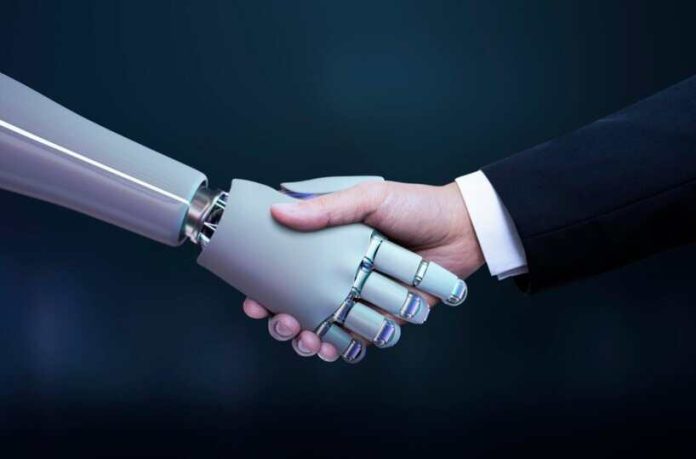Abstract
Artificial Intelligence (AI) is steadily weaving itself into the fabric of legal work—not with dramatic proclamations, but through quiet transformation. Everyday tasks like poring over case law and analysing contracts are increasingly being handled by intelligent systems, giving lawyers back valuable time and mental bandwidth.
In India, platforms such as Manupatra, CaseMine, Kanoon.ai, and LegitQuest are reshaping legal research by using machine learning, natural language processing (NLP), and smart summaries to make browsing judgments and statutes intuitive.
Meanwhile, startups like Ivo are revolutionizing contract review—reducing work that once took days into minutes.
Yet, caution echoes from the courts. The Kerala High Court has firmly declared that AI may assist, but must never decide. Generative tools such as ChatGPT, Gemini, Copilot, and DeepSeek are barred from drafting judgments or concluding legal reasoning. Instead, they are confined to supportive roles like drafting, summarizing, or scheduling, always under human verification and audit trails.
Ultimately, AI is not a rival to legal professionals—it’s a collaborator. With intentional use, ethical vigilance, and human-centred design, AI can illuminate legal work, enhancing justice rather than eclipsing it.
Introduction
The story of AI in law is not one of sudden breakthroughs, but of gradual adaptation. From early experiments in human-like reasoning, scholars have long wondered whether legal tasks—rooted in rules, logic, and interpretation—might be shared with machines.
Today, AI technologies such as NLP, machine learning, and data analytics are being integrated into legal workflows, including:
- Legal research
- Contract analysis
- Litigation prediction
- Compliance monitoring
How AI Helps Lawyers
- AI-powered research tools quickly identify case law and statutes.
- Contract review platforms detect risks, inconsistencies, and non-compliance.
- Litigation prediction models analyse past judgments to forecast possible outcomes.
However, with these benefits come serious challenges—ethical, regulatory, and systemic—which must be addressed to preserve justice, fairness, and due process.
Challenges Faced by the Legal System
1. Bias and Discrimination
AI models trained on historical datasets risk perpetuating existing racial, gender, or socio-economic biases, leading to discriminatory outcomes.
2. Lack of Transparency (The “Black Box” Problem)
Many AI systems operate opaquely, making it difficult to explain how decisions are reached—contradicting the legal system’s demand for reasoned and transparent judgments.
3. Data Privacy and Security
AI relies on vast datasets, often including confidential client information. Ensuring compliance with data protection laws like GDPR is crucial to prevent breaches.
4. Accountability and Liability
When AI produces erroneous legal advice or unjust outcomes, assigning responsibility—whether to developers, users, or institutions—remains unclear.
5. Ethical Concerns
Delegating legal reasoning to machines raises ethical issues surrounding:
- Fair trial rights
- Human judgment
- Informed consent
6. Regulatory and Legal Frameworks
India currently lacks comprehensive AI-specific legislation in law. This regulatory vacuum risks inconsistent practices and legal uncertainty.
Case Laws
1. ANI v. OpenAI (Delhi High Court, 2024)
- Issue: ANI alleged that OpenAI used its content to train ChatGPT without permission, violating copyright.
- Court Action: The Delhi HC issued notice to OpenAI, highlighting issues of data privacy and intellectual property rights in AI training.
2. Kerala High Court Guidelines on AI Usage (2024)
- Ruling: Prohibited the use of AI tools for legal reasoning or judgments.
- Court’s Reasoning: AI may assist in drafting or summarizing but must never replace judicial decision-making, to maintain public trust and judicial integrity.
Conclusion
The advent of AI in law represents a watershed moment in legal practice. It enhances efficiency, research, predictive analytics, and document review—but must never compromise fairness and accountability.
Key concerns include:
- Algorithmic bias
- Opaque decision-making
- Professional liability
- Erosion of human judgment
The best path forward is a symbiotic model: AI as an assistant, lawyers as decision-makers. With robust regulation, ethical safeguards, and ongoing training, AI can enhance access to justice while preserving the rule of law.
References
Cases
- ANI v OpenAI, CS(COMM) 1234/2024 (Delhi HC)
- Kerala High Court Guidelines on AI Usage, WP(C) No. 12345/2024 (Kerala HC)
Websites
- D Panchal et al., LawPal … India (2025) arXiv <…> accessed [6th September 2025]
- LegitQuest, Legal Research Tool <…> accessed [6th September 2025]
FAQs
Q1. Can AI replace legal reasoning or judgments?
No. Courts like the Kerala High Court have ruled that AI may only assist, while final decisions must be made by human judges.
Q2. What are the key risks of AI adoption in law?
- Bias and discrimination
- Lack of transparency (“black box”)
- Data privacy risks
- Unclear accountability
Q3. How is AI improving legal access in India?
Innovative platforms like LawPal (a RAG-based chatbot) are democratizing legal knowledge by providing quick, reliable access to statutes and judgments.
Also Read:
Rights of undertrial prisoners in India
How To Send A Legal Notice In India


